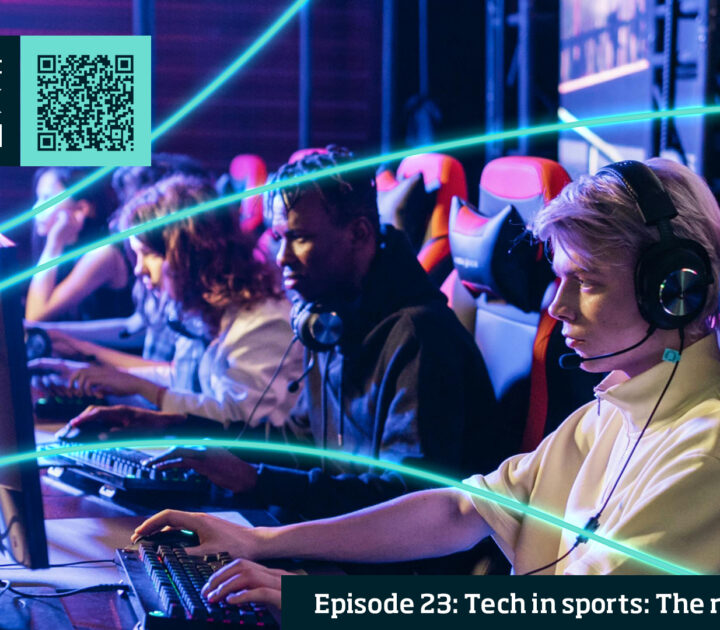
Blockchain
Artificial intelligence, big data analytics, and the internet of things are some of the most ground-breaking applications of the digital revolution we are living in the last decade. We are all aware of the profound implications that these will have on business models and strategies, education, and even the competitiveness of nations. Most executives we confront with these issues do not hesitate at defining them, and very few challenge the amazing transformations that they entail. In contrast, when we ask our executive audiences, in a show of hands, to define what blockchain is, very few are able to do it in a convinced and convincing way.
Blockchain is, in my opinion, the biggest innovation that we are witnessing today, only at par with the internet, the personal computer and the euro. It is a technological innovation: in fact, and at a pure computing level, the blockchain is a decentralized ledger, that is, a list of all transactions across a peer-to-peer network. In principle this looks like a harmless technology. However, it solves one of the most secular and complex problems in computing: how to provide security and trust in a peer-to-peer network without a central authority. If you have a look at any interaction that two individuals have through the internet, they are all intermediated: banking transactions, payments, e-commerce, social network interactions, email, job searches, property rentals, online auctions,… Blockchain eliminates the need for any of these intermediaries: banks, payment companies, stock brokers, servers, companies like AirBnb, Ebay, Facebook, Linkedin, etc. A blockchain—there is not just one, it can be customized to whichever needs we have—is designed so anyone can be sure that a counterparty is fulfilling its obligation on the other side, without the need for certification of any third party. Think of a cash payment. If Arturo pays physical cash to Michael, Michael is completely certain that: (i) Arturo had the money; (2) the money has been transferred to Michael, and (3) the money is now rightfully owned by Michael. In an online payment, in contrast, neither of these can be certified unless someone else (a bank, Paypal, a credit card company) ensures all steps in the transaction. The role of the intermediary can be extended to property registries, corporate compliance, know-you-customer (KYC) in banking, online legal contracts, and etcetera. Blockchain technology solves this problem through two very simple artifacts: first, a ledger, that is, a decentralized list of all transactions in the network that are simultaneously shared by all members of such network. Second, the immutability of such list, which is guaranteed because the ledger can be reconstructed only backwards—that is, each transaction in the ledger links to the previous one, so if the chain is violated/hacked, the “blockchain” will be broken.
Today, blockchain has many tanglible applications. Best known is bitcoin. Yet it would be a big mistake to consider that blockchain is only bitcoin. Several central banks are already innovating in the field of crypto-currencies (England, Sweden, Estonia). There are applications of blockchain in the field of virtual registry of properties (several countries in Africa), or in smart contracting (Switzerland). At the minimum, blockchain is the safest and cheapest alternative to any company’s intranet.
So let us say that you are in the consumer goods industry, or in the automotive industry, or in the consulting services industry. Why should you care? Within companies, blockchain will also disrupt any job that intermediates transactions and/or centralizes information. For example: accounting, compliance, information systems, procurement. But also the way how companies will interact with companies—because now customers will have direct information about companies’ products and services. Investors will be able to finance companies without the need for financial markets; within companies, any information can flow without any friction and both decisions and behaviors will be completely transparent. Business models will be drastically modified and improved; cost structures will become way more efficient; contracting will be seamless.
The impact of blockchain is not confined to the corporate sector. In turn, the new technology is currently most applied in the public sector. Central Banks are already embracing the disruption, and the most digitally innovative governments (Singapore, Estonia, Sweden) use blockchain to disintermediate the relationship between the regulator and the citizens. Property registry, public contracting, legal enforcement, public records will be all be automated and facilitated through blockchain in a very short time.
To conclude, if you either do not know what blockchain is, or you think it is not relevant for you, this is my advice. First, be aware of this technology. Read, do research, ask around, get information about blockchain, how it works, what advances are currently being made in your industry. Second, prepare yourself to transform the way your company operates and the way you interact with the rest of the world. Third, be the pioneer in your industry to gain a first-mover advantage. The blockchain revolution is already here.
Arturo Bris is Professor of Finance at IMD and directs the IMD World Competitiveness Center.
Research Information & Knowledge Hub for additional information on IMD publications
The increasing datafication of the workplace is often cast as a means of imposing organisational and managerial control on workers. This reflection...
The payment processing industry in Europe had operated in largely the same way for decades. A standard system of financial processing and clearing ...
Research Information & Knowledge Hub for additional information on IMD publications
Research Information & Knowledge Hub for additional information on IMD publications
Research Information & Knowledge Hub for additional information on IMD publications
in Scandinavian Journal of Information Systems July 2024, vol. 36, no. 1, article 2
Research Information & Knowledge Hub for additional information on IMD publications
in I by IMD 27 June 2024
Research Information & Knowledge Hub for additional information on IMD publications
Research Information & Knowledge Hub for additional information on IMD publications
Research Information & Knowledge Hub for additional information on IMD publications
Research Information & Knowledge Hub for additional information on IMD publications
Published by International Institute for Management Development ©2024
Research Information & Knowledge Hub for additional information on IMD publications
in I by IMD Magazine June 2024, no. 14, pp. 48-53
Research Information & Knowledge Hub for additional information on IMD publications







